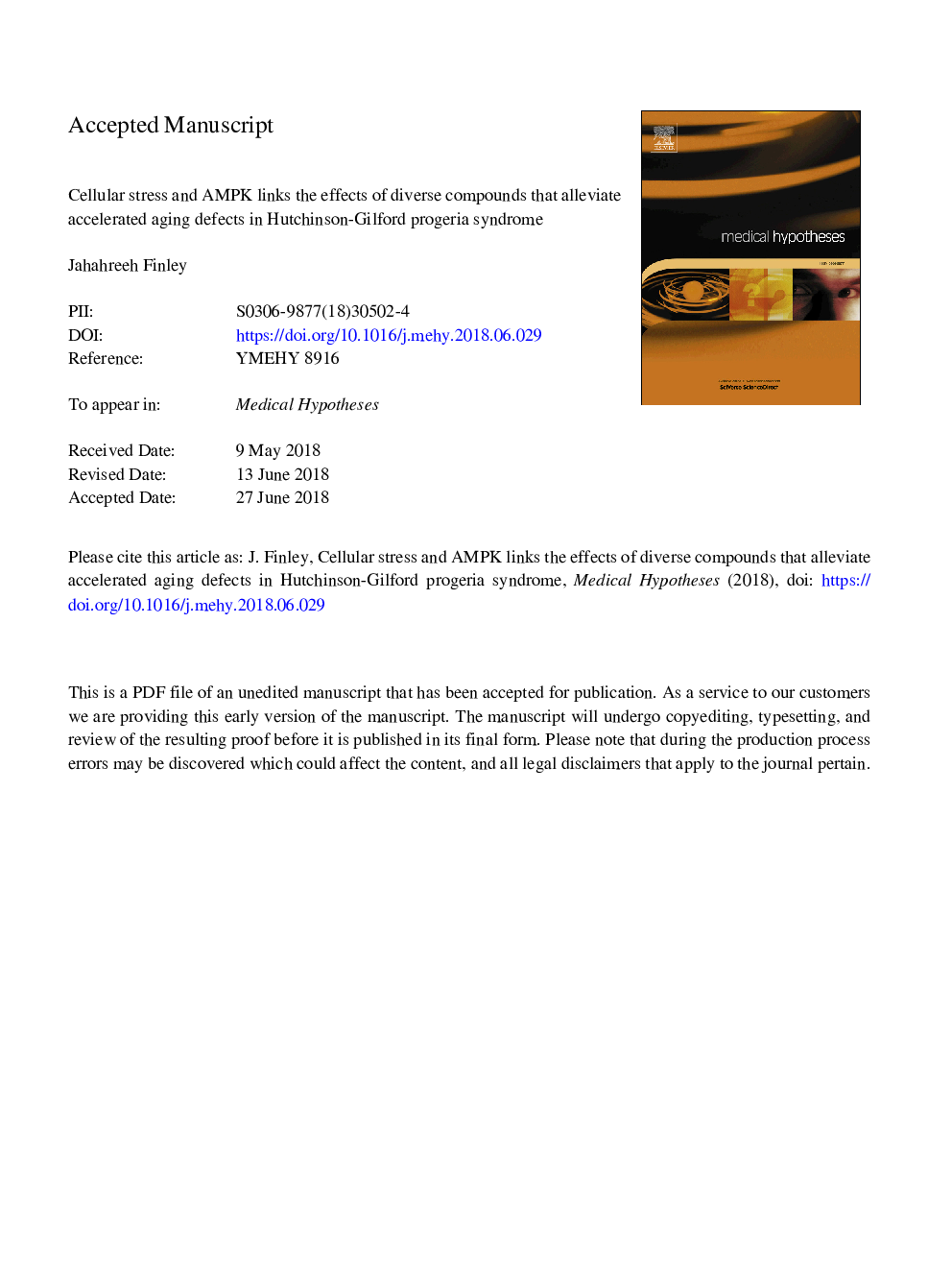| Article ID | Journal | Published Year | Pages | File Type |
|---|---|---|---|---|
| 8515329 | Medical Hypotheses | 2018 | 62 Pages |
Abstract
Hutchinson-Gilford progeria syndrome (HGPS) is a rare genetic disorder characterized by an accelerated aging phenotype that typically leads to death via stroke or myocardial infarction at approximately 14.6â¯years of age. Most cases of HGPS have been linked to the extensive use of a cryptic splice donor site located in the LMNA gene due to a de novo mutation, generating a truncated and toxic protein known as progerin. Progerin accumulation in the nuclear membrane and within the nucleus distorts the nuclear architecture and negatively effects nuclear processes including DNA replication and repair, leading to accelerated cellular aging and premature senescence. The serine-arginine rich splicing factor SRSF1 (also known as ASF/SF2) has recently been shown to modulate alternative splicing of the LMNA gene, with SRSF1 inhibition significantly reducing progerin at both the mRNA and protein levels. In 2014, we hypothesized for the first time that compounds including metformin that induce activation of AMP-activated protein kinase (AMPK), a master metabolic regulator activated by cellular stress (e.g. increases in intracellular calcium, reactive oxygen species, and/or an AMP(ADP)/ATP ratio increase, etc.), will beneficially alter gene splicing in progeria cells by inhibiting SRSF1, thus lowering progerin levels and altering the LMNA pre-mRNA splicing ratio. Recent evidence has substantiated this hypothesis, with metformin significantly reducing the mRNA and protein levels of both SRSF1 and progerin, activating AMPK, and alleviating pathological defects in HGPS cells. Metformin has also recently been shown to beneficially alter gene splicing in normal humans. Interestingly, several chemically distinct compounds, including rapamycin, methylene blue, all-trans retinoic acid, MG132, 1α,25-dihydroxyvitamin D3, sulforaphane, and oltipraz have each been shown to alleviate accelerated aging defects in patient-derived HGPS cells. Each of these compounds has also been independently shown to induce AMPK activation. Because these compounds improve accelerated aging defects in HGPS cells either by enhancing mitochondrial functionality, increasing Nrf2 activity, inducing autophagy, or by altering gene splicing and because AMPK activation beneficially modulates each of the aforementioned processes, it is our hypothesis that cellular stress-induced AMPK activation represents an indirect yet common mechanism of action linking such chemically diverse compounds with the beneficial effects of those compounds observed in HGPS cells. As normal humans also produce progerin at much lower levels through a similar mechanism, compounds that safely induce AMPK activation may have wide-ranging implications for both normal and pathological aging.
Keywords
Related Topics
Life Sciences
Biochemistry, Genetics and Molecular Biology
Developmental Biology
Authors
Jahahreeh Finley,
